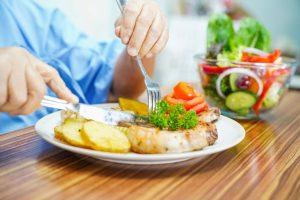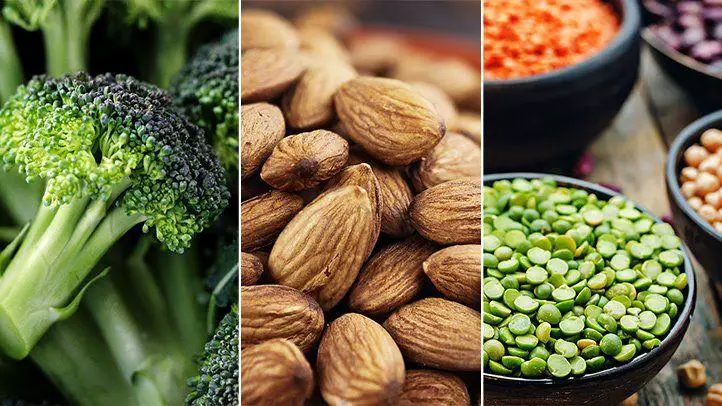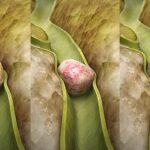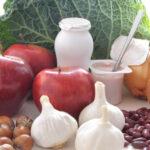Gallbladder surgery, also known as cholecystectomy, is a common procedure performed to remove the gallbladder. The gallbladder plays a role in storing bile, a fluid produced by the liver that aids in the digestion of fats. After the surgery, it is essential to make dietary adjustments to support your recovery and ensure optimal digestion. This article will provide you with a comprehensive guide on what to eat after gallbladder surgery, outlining suitable food choices and offering helpful tips for a smooth transition to a post-surgical diet.
Introduction
Undergoing gallbladder surgery can result in changes to the way your body digests and processes fats. The absence of the gallbladder can impact the release and regulation of bile, which aids in the breakdown of dietary fats. Therefore, it is crucial to adopt a post-surgical diet that supports your digestive system and promotes healing.
Immediate Post-Surgery Diet
Immediately after gallbladder surgery, your healthcare provider will likely recommend a clear liquid diet. This diet helps prevent complications and allows your body to adjust to the changes after the surgery. Clear liquids include water, broth, herbal tea, and gelatin.
Gradual Transition to Regular Diet
Once you tolerate the clear liquid diet, you can gradually transition to a regular diet. The transition should be done under the guidance of your healthcare provider. The goal is to introduce foods that are easily digestible and low in fat. It’s important to note that the exact timeline for transitioning to a regular diet may vary from person to person
Foods to Include in Your Diet

After gallbladder surgery, it is advisable to incorporate the following foods into your diet:
1. Lean Protein
Choose lean protein sources such as skinless chicken, turkey, fish, and tofu. These options provide essential nutrients without placing a heavy burden on your digestive system.
2. High-Fiber Foods
Include plenty of high-fiber foods like fruits, vegetables, whole grains, and legumes. Fiber aids in digestion and helps regulate bowel movements, preventing constipation.
3. Healthy Fats
Although fats can be more challenging to digest without a gallbladder, it is still important to include healthy fats in your diet. Opt for sources like avocados, olive oil, and nuts, as they contain monounsaturated fats that are easier to process.
4. Low-Fat Dairy Products
If you tolerate dairy well, choose low-fat options such as skim milk, yogurt, and reduced-fat cheese. These provide important nutrients like calcium and protein without excessive fat content.
5. Small, Frequent Meals
Instead of consuming large meals, opt for smaller, more frequent meals throughout the day. This approach can help ease the digestion process and prevent discomfort.
Foods to Avoid
Certain foods may trigger digestive issues or discomfort after gallbladder surgery. It’s best to avoid the following:
1. High-Fat Foods
Avoid high-fat foods, including fried foods, greasy dishes, fatty cuts of meat, and full-fat dairy products. These foods can be challenging to digest and may cause diarrhea or abdominal pain.
2. Spicy Foods
Spicy foods, such as hot peppers, can irritate the digestive system. It’s advisable to avoid or minimize their consumption, especially during the initial stages of recovery.
3. Gas-Producing Foods
Some foods can contribute to gas and bloating, causing discomfort. Examples include carbonated beverages, beans, lentils, cabbage, and onions. Gradually reintroduce these foods into your diet and monitor your body’s response.
4. Caffeine and Alcohol
Both caffeine and alcohol can stimulate the digestive system and potentially worsen symptoms. It’s recommended to limit or avoid these substances, especially in the early stages of recovery.
Tips for Digestive Health
To support your digestive health after gallbladder surgery, consider the following tips:
- Chew your food thoroughly to aid digestion.
- Eat slowly and mindfully, allowing your body to register fullness.
- Stay hydrated by drinking an adequate amount of water throughout the day.
- Avoid eating large meals before bedtime to prevent acid reflux.
- Engage in regular physical activity to promote digestion and overall well-being.
Meal Ideas and Recipes
Here are some meal ideas and recipes suitable for a post-gallbladder surgery diet:
1. Grilled Chicken Breast with Steamed Vegetables
Grill a skinless chicken breast and serve it with a side of steamed broccoli, carrots, and cauliflower. Season with herbs and spices for added flavor.
2. Quinoa Salad with Roasted Vegetables
Prepare a quinoa salad with roasted zucchini, bell peppers, cherry tomatoes, and spinach. Drizzle with lemon juice and olive oil for a refreshing taste.
3. Baked Salmon with Sweet Potato Mash
Bake a salmon fillet and serve it with mashed sweet potatoes. Steam some asparagus as a nutritious side dish.
Staying Hydrated
Proper hydration is essential for overall health and digestion. Drink at least eight glasses of water per day, and consider incorporating herbal teas and fresh fruit juices into your fluid intake.
Physical Activity
Engaging in regular physical activity promotes digestion and helps maintain a healthy weight. Consult your healthcare provider regarding suitable exercises based on your individual recovery process.
Potential Complications
While gallbladder surgery is generally safe, there can be potential complications. It is crucial to be aware of warning signs such as severe abdominal pain, high fever, persistent nausea or vomiting, and jaundice. Contact your healthcare provider immediately if you experience any concerning symptoms.
Conclusion
Adapting your diet after gallbladder surgery is essential for a smooth recovery and optimal digestion. Focus on incorporating lean proteins, high-fiber foods, healthy fats, and low-fat dairy products into your meals. Avoid high-fat, spicy, and gas-producing foods, and be mindful of your portion sizes. By following these guidelines and seeking guidance from your healthcare provider, you can gradually transition to a post-surgical diet that promotes healing and well-being.
FAQs
Q1. How soon can I start eating solid foods after gallbladder surgery?
The timeline for reintroducing solid foods varies for each individual. Your healthcare provider will guide you through the process and recommend the appropriate time to start.
Q2. Can I still enjoy desserts after gallbladder surgery?
Yes, you can enjoy desserts in moderation. Opt for low-fat or healthier alternatives, such as fruit-based desserts or those made with reduced-fat ingredients.


